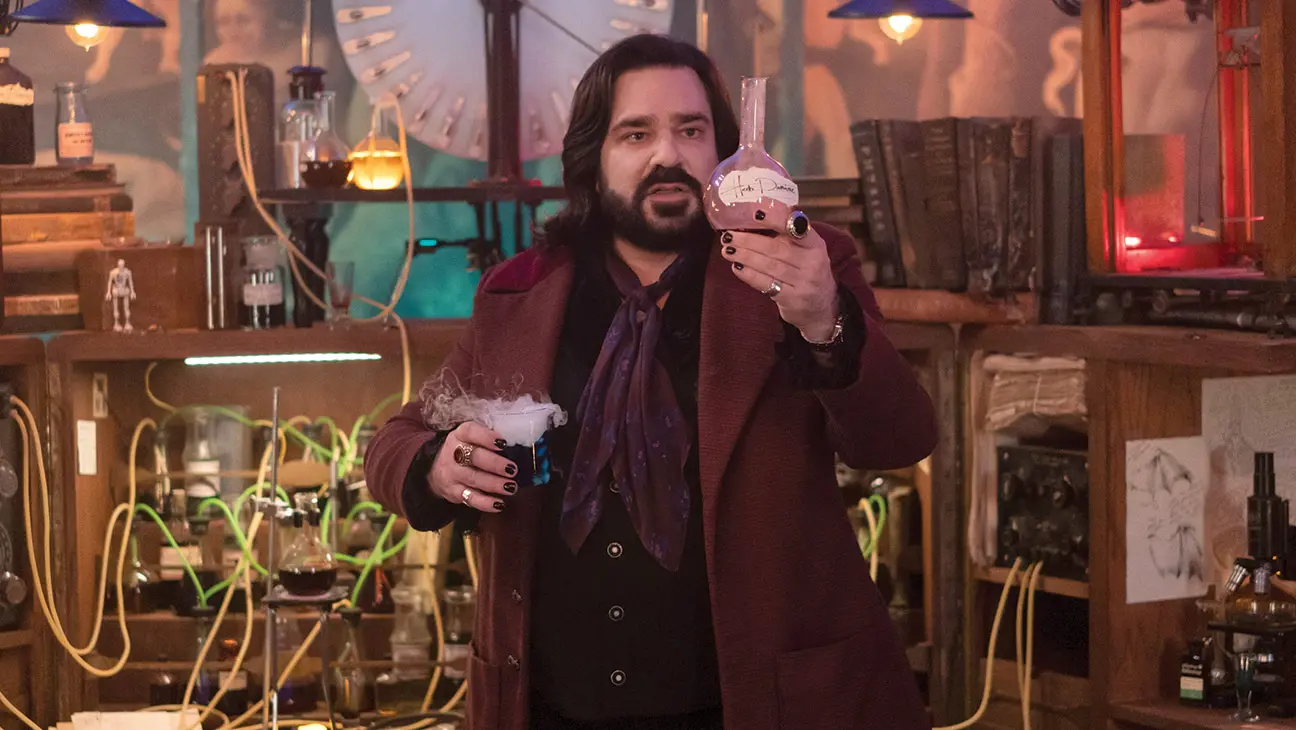FX’s mockumentary series What We Do in the Shadows, created by Jemaine Clement and based on the 2014 film directed by and starring Clement and Taika Waititi, earned its third nom for best comedy series in July, and it has gathered numerous writing and crafts honors throughout its run (which concludes with its sixth season, set to premiere in October). But the Television Academy has passed over its ensemble of comic performers for recognition — until now.
For five seasons, Matt Berry has charmed audiences as the centuries-old vampire Laszlo Cravensworth, a pansexual English dandy who occupies his time in the most recent season investigating the bizarre turn of events following the resident human familiar Guillermo (Harvey Guillén) secretly becoming a vampire. Here, the first-time Emmy nominee speaks with THR about the joys of improvising on set and learning how to deliver lines full of unfamiliar American cultural references.
The show has been nominated for best comedy series three times, but the cast has been overlooked by the Academy until now. How does it feel to earn this recognition?
It’s a huge honor. It’s an ensemble, so it’s on behalf of all of us, you know. I’m happy for the show. Everybody works hard from every department, so to get all of those nominations is an absolute thrill. Hard work will pay off in the end. We also got one for sound, one for costumes, one for the set — as it should be. Those sort of elements of the show are really important and of such a high standard.
How do the crafts, like costumes, play a role in your performance?
Costumes are the obvious thing, and that’s very important, don’t get me wrong. I can’t speak for the rest of the cast, but [for me] it was the set and the furniture within the set that determined how you get up, how you sit down, how you enter a room, and all these kinds of things that are responsible for part of the character. You don’t know it while you’re doing it; it’s a very subconscious thing, the reason you walk through this door or sit down on this chaise longue. It then informs what your character is going to do, what he’s going to say and how he’s going to say it.
The show also boasts a great comic ensemble. How do your scene partners boost your performance?
Most of the scenes, especially the scenes in the mansion, are group scenes. It’s always been sort of natural with Kayvan [Novak, who plays leader Nandor] and Natasia [Demetriou, who plays Laszlo’s wife, Nadja]. I know that it doesn’t matter what ridiculous [thing] comes out of my mouth, they’re not going to be stuck or lost for words. That is such an important thing to know that you’ve got that, that they won’t break — they’re straight back at you with something equally preposterous, which helps everyone.
There are a lot of British comedians on this largely American-written show. How do the countries’ different comic sensibilities blend?
In this past season, there were so many American [pop culture] references, and I haven’t got a clue what hardly any of them are. You just kind of navigate those and make them work for your own language and speech pattern. But you know, it was a show that was created by two Kiwis from New Zealand, and their sense of humor is kind of similar to our [British] sense of humor.
Considering Laszlo wouldn’t know contemporary American references makes your performance almost like Method acting …
Most of the names I pronounce [incorrectly] aren’t on purpose — it’s because I don’t know what they are. Especially sports, all these ballgames … baseball, softball, I haven’t got a clue what any of that is! It will be just a case of saying what I think it is, just sort of launching into it like that. You put your own spin on things.
I think of Laszlo as one of television’s most unapologetically queer characters.
It’s all a massive kind of celebration. It doesn’t matter what it is. It’s just, you know, he’s very happy to still be doing what he’s always done for hundreds of years.
Laszlo, like the rest of the characters, is hilariously dim-witted, which feels like a rarity right now when antiheroes and dark comedy rule television.
It’s pure escapism, right? Comedy is very cautious right now, and a lot of characters that people play aren’t able to do that. But this guy is over 300 years old. He hasn’t got anything to lose. He can say and do whatever, and you can’t kill him, right?
This story first appeared in an August stand-alone issue of The Hollywood Reporter magazine. To receive the magazine, click here to subscribe.





